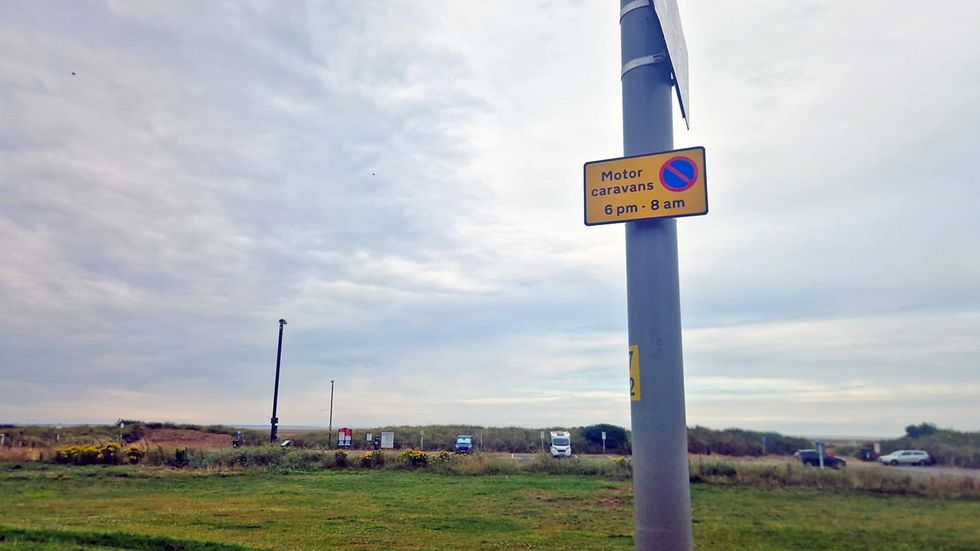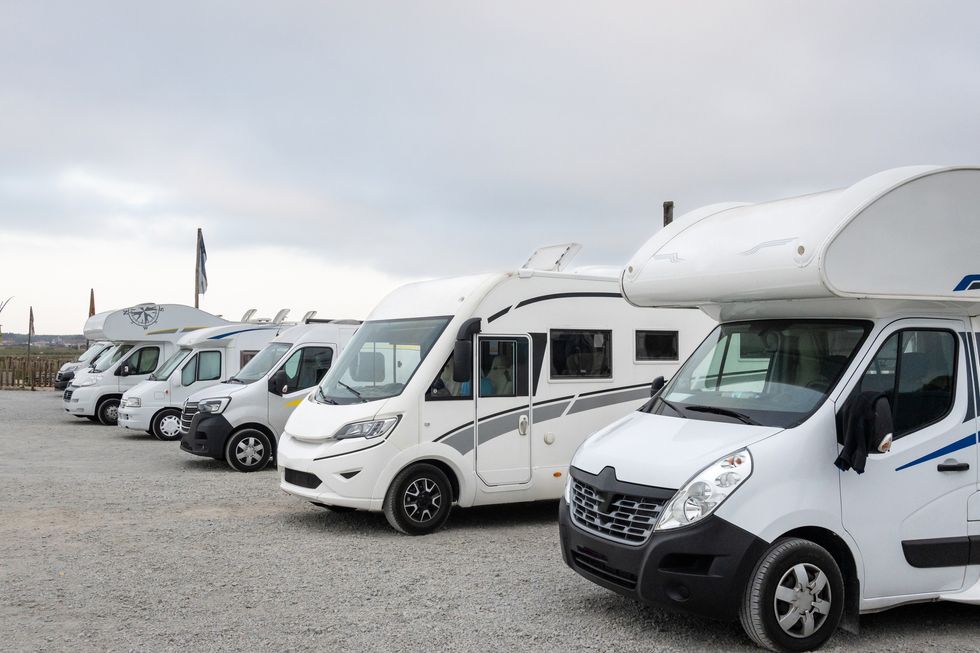WATCH: Drivers face motorhome parking ban in popular tourist areas
GB NEWS
Councillors in the area will vote on the potential ban on November 13
Don't Miss
Most Read
Trending on GB News
Campervans and motorhomes could be banned from parking overnight in all council-owned car parks across a major region after numerous complaints from residents.
Lancaster City Council is set to meet at Morecambe Town Hall next Wednesday (November 13) to vote on a motion which would see new restrictions imposed and subsequent fines.
The motion, primarily pushed by a group of Labour councillors, would affect all council-operated car parks across Lancaster and Morecambe District.
The proposal seeks to ban overnight parking of campervans and motorhomes specifically on Morecambe Promenade, where residents have reported issues with nuisance and pollution.
Do you have a story you'd like to share? Get in touch by emailingmotoring@gbnews.uk

Lancashire launched a ban in July to stop vehicles clogging up the area
LANCASHIRE COUNTY COUNCIL
The motion detailed: “The council has received numerous concerns over a period of time about the longer term and overnight parking of campervans on Morecambe promenade. The parking of vehicles more generally in Morecambe is a key element of delivering Eden Project Morecambe.
“There will be a Parking Strategy to be agreed for Eden Project Morecambe. Furthermore, the wider area of central Morecambe and the promenade needs to be considered. A Central Morecambe Regeneration and Investment Strategy is currently out for tender within which transport and highways solutions will be a key consideration."
However, the motion, brought in by Morecambe Labour councillors Margaret Pattison and David Whitaker, noted that the ban is not intended to prevent visitors with campervans from coming to the area.
The councillors explained: "This motion is not to stop campervans and statics visiting Morecambe, it is to stop overnight parking on our highways and council car parks for environmental and health and safety reasons.”
The councillors shared concerns from residents about the impact on tourism and the local economy, as well as potential reputational damage to Lancaster City Council.
Meanwhile, county councillor Rupert Swarbrick said: "These new measures will also take into account the cumulative visual impact of these large vehicles, their effect on parking availability, and the environmental impact."
The motion called for three specific actions which include engaging with organisations like Lancashire County Council to ban overnight parking on Morecambe Promenade, implementing a ban across all council car parks, and establishing a working group to explore alternative locations.
It also follows previous demands by residents who have voiced strong opposition to campervan parking in the area, particularly along Morecambe Promenade.
In May, Morecambe Town Council called for stricter measures against motorhome owners parking on Marine Road for extended periods, which mirrored similar measures recently implemented in other coastal areas.
Lancashire County Council announced in July new restrictions on parking between 6pm and 8am on Todmorden Road, North Promenade, South Promenade, Inner Promenade, King Edward Avenue, St Paul's Avenue, Ansdell Road South, Fairlawn Road, Seafield Road, Woodville Terrace and Lowther Terrace.
The ban which came into immediate effect would see any drivers face a £70 Penalty Charge Notice if caught breaking the rule.
Councillor Rupert Swarbrick said at the time the new parking restrictions would hope to crack down on the environmental impact caused by a “minority of owners who empty liquid waste down drains and on green areas along the promenade”.
LATEST DEVELOPMENTS:
- Labour sticks with electric vehicle incentives despite Rachel Reeves introducing car tax hikes next year
- Edinburgh and London rank top for cleanest air despite millions of drivers being slapped with fines
- British drivers see fuel prices at 'three-year-low' ahead of huge petrol station changes launching soon
 Motorhome and campervans to be banned from parking overnightGETTY
Motorhome and campervans to be banned from parking overnightGETTY"In addition, they will also help support Fylde Council's coastal strategy to help protect the vitally important habitats, heritage and visitor economy of the seafront and help better manage how coaches drop off and pick up visitors,” Swarbrick added.








